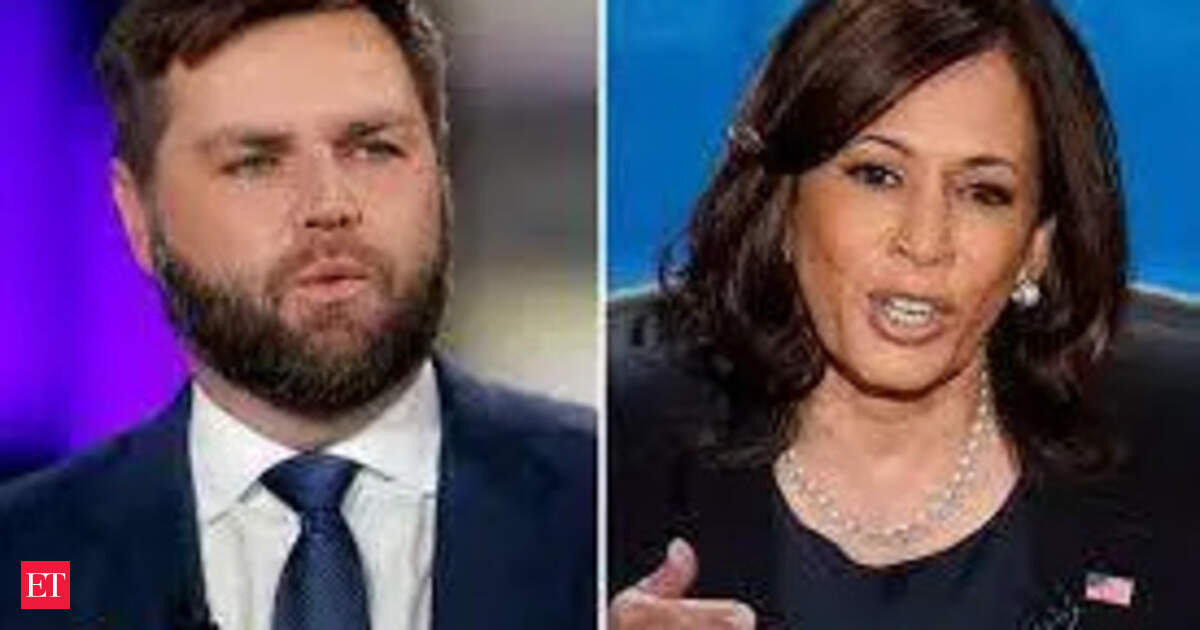Why North Carolina Polling MattersNorth Carolina has long been considered a battleground state with the power to sway national results. As a microcosm of broader U.S. political sentiment, primary polling in states like North Carolina can reveal emerging frontrunners and influential voter attitudes. With the 2028 cycle already stirring interest, these early tests offer insight into name recognition, party enthusiasm, and the evolving face of each party’s leadership.
Emerson Poll Snapshot: Republicans vs DemocratsBetween July 28–30, 2025, pollsters surveyed 1,000 registered voters across North Carolina, including categorised subgroups of likely Republican and Democratic primary voters. The survey carries a margin of error of ±3 percentage points. These early results are especially notable given that major candidates have yet to officially declare runs, as mentioned in a report by Newsweek.
Republican Field: Vice President Vance Leading by Wide MarginAmong likely Republican primary voters, Vice President J.D. Vance dominates with 53% support, far ahead of Florida Governor Ron DeSantis (7%) and Senator Marco Rubio (5%). Conservative figures such as Vivek Ramaswamy and Nikki Haley draw lower single-digit support. Nearly 15% remain undecided, potentially leaving space for shifts as the field evolves.
These results align with national polling: in a May Emerson poll, Vance led the GOP primary with 46% support, while DeSantis captured 8%, and Rubio 12% in other surveys. Democratic Outlook: Buttigieg Leads, But Harris Still CompetitorOn the Democratic side in North Carolina, Pete Buttigieg holds a narrow lead with 17%, followed by Kamala Harris at 12% and Gavin Newsom at 10%, with 24% undecided.
This pattern reflects broader national trends: a June Emerson national poll showed Harris in the lead at 30% among Democratic primary voters, though Buttigieg and Newsom gained in second and third positions with single-digit percentages, as per a report by Newsweek.
Public Sentiment Extends Beyond NamesBesides candidate preferences, the poll highlights key voter sentiments:
40% of North Carolinians report their family’s finances are worse off than a year ago, while 28% say finances have improved and 32% report stability.
These concerns may shape priorities for primary voters as they evaluate 2028 contenders on issues such as the economy, inflation, and job security, as per a report by Newsweek.
Expert Commentary: Vance Gains, Democrats Await ClarityColumbia University political scientist Robert Y. Shapiro observed that early Democratic polling largely reflects name recognition rather than policy appeal. He added that Republican figures like DeSantis and Rubio carry baggage from past losses in high-profile contests, while Vance benefits from his vice-presidential platform and alignment with former President Trump’s MAGA agenda.What Happens Next: Timing and MessagingMost presidential hopefuls are unlikely to formally announce candidacies until after the 2026 midterm elections, a traditional milestone in modern campaigns. In the interim, potential candidates such as Buttigieg, Newsom, and Harris may increase national visibility through media appearances, speeches, and policy statements.
On the Republican side, Vance’s commanding early lead positions him as the presumptive frontrunner, though undecided voters and favorable candidate shifts could alter the landscape as the next cycle approaches.
Key TakeawaysVance’s Strength in GOP Primaries: With over half the Republican support in North Carolina, Vance emerges as the early favorite.
Competitive Democratic Field: Buttigieg holds a slim edge in North Carolina, but the national picture remains fluid as voters weigh familiar names.
Economic Anxiety: Many North Carolinians feel financially strained, underscoring economic messaging as a decisive factor.
High Undecided Vote Share: With nearly a quarter to 15% undecided across party lines, there’s significant room for jockeying.
Long Road Ahead: True clarity will likely emerge post-midterms, once major candidates formally enter the race.
While still early in the eight-year presidential cycle, the Emerson College poll in North Carolina underlines evolving allegiances and growing clarity around frontrunners. For Republicans, Vice President Vance is off to a strong start, while Democrats face a more fragmented field.
FAQsWhen was the Emerson College poll conducted?The poll was conducted between July 28–30, 2025, surveying 1,000 registered voters in North Carolina.What is the margin of error for the poll? The survey has a ±3 percentage point margin of error.

